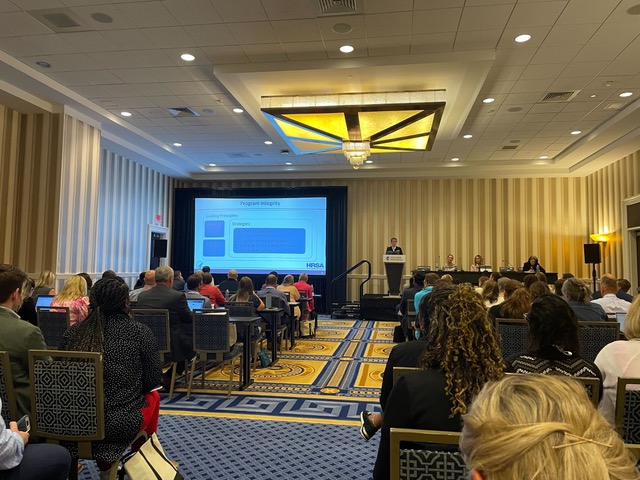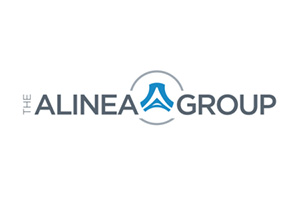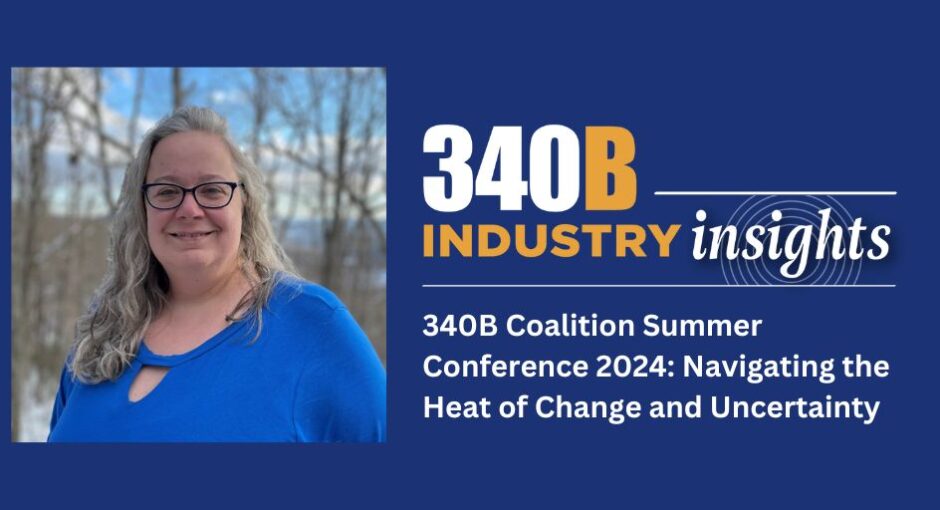SPONSORED CONTENT
With the hottest weather of the summer and the hottest topics to go with it, the 340B Coalition Summer Conference was one for the record books. Uniting 340B stakeholders from all backgrounds, over 1,500 attendees met in D.C. feeling apprehensive due to numerous key issues that have to yet to unfold… or as keynote David Pogue posited, was it all just an AI Hallucination?
Numerous sessions during the conference addressed the unresolved issues such as HRSA oversight, mandated covered entity reporting, congressional proposals, statute specificity, as well as manufacturer restrictions and state actions resulting in exceptions. Many attendees were seeking more clarity, accountability, and transparency, but was the outcome any clearer than the hazy summer sky?


HRSA Program Integrity Intensifies, Surpassing Published Results
Notifications for FY2024 HRSA audits continue to be received by covered entities (CEs), with 161 CEs audited as of June 1, 2024. However, final reports are sparce, with only 19 being posted on HRSA’s website to date. Audit results are becoming increasingly comprehensive and stringent, which aligns with Alinea’s observations from participating in recent Bizzell audits. The primary focus areas remain the assessment of statutory requirements for eligibility, duplicate discounts, and diversion.
CEs received insider information about how risk-based audits are selected. Entities with greater program complexity, a larger number of child sites, and contract pharmacy relationships, may have a higher probability of an audit. Additionally, targeted audits may be prompted by reported violations and allegations.
The session also focused heavily on audit disagreements and corrective action plans (CAPs.) When submitting a disagreement, CEs are expected to provide concise but comprehensive and compelling information, with supporting documentation from a primary source. HRSA also encourages CEs to use the provided CAP template to help avoid a CAP revision request. After the CAP has been accepted, HRSA may request supporting documentation to prove the CAP was completed and may later initiate a re-audit of the covered entity to verify ongoing compliance. Additionally, it was noted that repeat, systematic and egregious findings could result in removal from 340B.
During the sessions, Bizzell also provided information on best practices for preparing for HRSA audits. They advised reviewing policies and procedures in advance to ensure operational consistencies and requesting prescription hard copies from the corresponding contract pharmacies for the samples provided. Notably, Bizzell repeatedly emphasized that entities must exclude PHI/PII from all data submissions.
The key takeaway from the Apexus session was the importance of self-auditing, noting that “self-auditing is the key to perpetual compliance”. Additionally, they advised entities to engage in annual independent audits since 340B consultants know how to “look for the thread, and pull the thread”, referring to finding a compliance risk and getting to the bottom of it.
U.S. Public Health Service Commander Jane McLaughlin said it best, “you need to be in compliance from day one and stay compliant. Be prepared. Believing you are in compliance is not enough; you must be able to show it”.
HRSA Audit Shifts: Stricter Diversion Findings and New Compliance Challenges
Maureen Testoni of 340B Health noted that the recent release of some HRSA audit reports with diversion findings revealed a definite shift from the audit reports issued over the previous four years. From 2019-2023, there were no published findings of diversion related to prescriptions generated at non-hospital-based services. This shift may have significant implications for CEs that have modified their policies and procedures to consider prescriptions related to their patients to be 340B eligible, regardless of where the prescription originated.
The more restrictive application of the patient definition by HRSA, which includes the interpretation that the origination affects eligibility, comes after the notable delay that many entities experienced in receiving their audit reports following their HRSA audits. The Alinea Group has noted a similar shift with new diversion findings cited in outstanding audit reports beginning to be returned to clients this year. It remains to be seen if this will lead to more Genesis Health Care-aligned lawsuits against HRSA on the horizon.
340B Health also shared that several hospitals have received audit findings related to the Medicare Cost Report (MCR) information section of OPAIS not being up to date at the time of HRSA’s audit, despite being accurate at the time the hospital completed its annual recertification. Based on these findings, it appears HRSA’s expectation may have shifted to require hospital CEs to update OPAIS immediately following the filing of a new MCR in order to avoid a potential audit finding. However, as this has not been formally stated by HRSA or in an FAQ, there is some question as to whether or not this will be the standard moving forward.
Navigating IRA Uncertainty: Preparing for 340B Savings Amidst Medicare Negotiations
While it’s nearly time to start the second round of drug negotiation, entities have yet to experience the impact of the first round, which will not be effectuated until 2026. This session examined the perspective of both the covered entity and the manufacturer, recognizing there is still a major gap in the process due to CMS remaining rather hands-off in identifying an agreeable solution for calculating rebates to CEs and ensuring nonduplication of discounts for manufacturers. It is still unknown whether the Medicare Transaction Facilitator (MTF) will be used to facilitate claims submission and manufacturer payment of rebates, or whether entities will be required to apply modifiers to claims to avoid duplicate discounts.
Stakeholders should be aware of several key factors that may affect the IRA’s impact on 340B savings: payor mix and drug utilization by the entity, Maximum Fair Price (MFP) affecting the new best price but with a lag in the 340B ceiling price, potential that commercial payors may also reduce reimbursement in suit with Medicare, manufacturer future pricing strategies in response to the IRA, and CMS’s future selection of drugs to be negotiated. 340B Health has created an IRA Calculator Tool that can be used for financial forecasting to understand the potential impact on 340B savings in 2026. With the assistance of this tool, CEs have anecdotally reported that most anticipate 340B savings losses of 24-34% due to the projected Medicare reimbursement reduction.
Legislation Looms: Shaping the Future of 340B with Pending Bills
One topic woven throughout numerous sessions and networking discussions was the potential impact pending legislation could have in changing the landscape of 340B. Congress is currently considering multiple proposals that could significantly impact the 340B program.
- SUSTAIN 340B Act – A draft bill developed by a bipartisan 340B Senate Working Group intended to be a compromise among 340B stakeholders to increase the transparency, accountability, and integrity of the program. This would be accomplished through the restoration of contract pharmacy relationships with a commitment to provide patient assistance programs at the pharmacy counters, new provider reporting requirements on the use of 340B savings, prohibition of controversial drug distribution limitations and payer reimbursement policies, clarification and limitation of the patient definition in child sites, and development of multiple reporting requirements for all CEs.
- 340B PATIENTS Act (H.R. 7635) – Introduced by Rep. Matsui (D-Calif.), this act codifies contract pharmacy use in the 340B program. It requires manufacturers to offer 340B discounted drugs for purchase at contract pharmacies without restrictions and establishing civil monetary penalties for those manufacturers who do not comply.
- 340B ACCESS Act (H.R. 8574) – Introduced by Reps. Bucshon (R-Ind), Carter (R-GA) , and Harshbarger (R-TN), this bill includes significant program changes that would mostly be applicable to hospitals, including prohibiting private non-profit DSH hospitals from accessing 340B discounts for insured patients, developing a narrower patient definition, limiting the use of contract pharmacies, clarifying the types of service allowable for 340B prescription qualification, and establishing multiple reporting requirements for hospitals.
- H.R. 3290 – Introduced by Rep. Bucshon, this bill mainly focuses on the development and implementation of comprehensive reporting requirements for 340B hospital entities, with a specific focus on off-campus departments, i.e., child sites. Additionally, the bill gives HRSA authority to audit these hospitals to determine how the savings are used.
Based on the pending bills, multiple proposed or enacted state regulations, and direct comments from HRSA, it seems increased transparency through mandated reporting is a near certainty in the future. Exactly what that reporting will entail, however, is still quite unclear. CEs should prepare for this eventuality by understanding how to calculate their 340B savings and being able to concisely and thoroughly explain how those savings are being used to help patients and the community. The conference was an exciting and eventful three days of discussion and debate, but also a call to action for CEs to increase their 340B advocacy. This can be achieved by creating and updating impact profiles, meeting with federal and state lawmakers, and offering facility tours to showcase how 340B savings are meeting underserved community needs and improving patient care at their hospitals and clinics. Persevering through the ongoing uncertainty, CEs should continue to collaborate with their 340B consultants, state representatives, lawmakers, 340B member organizations, prime vendor, and other CEs to ensure the future sustainment of the 340B program.

Crista Parsons, Senior Data Analyst & Auditor at The Alinea Group, can be reached at crista.parsons@alinea-group.com.




